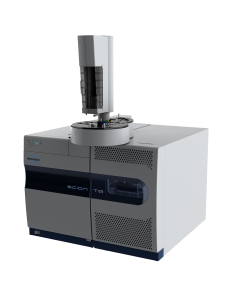Bruker, a provider of superior-performance scientific solutions and instruments for materials and molecular research, has declared that the Korean National Agricultural Products Quality Management Service (NAQS) has placed an order for six of its triple-quadrupole gas chromatography-mass spectrometry (GC-MS) systems, to monitor agricultural products and to analyze pesticide residue at the combined 8th Annual Meeting of the Korean Society for Mass Spectrometry (KSMS) and the 2nd Asian & Oceanic Mass Spectrometry Conference (AOMSC) conducted in Busan, Korea.
 The New High-Performance SCION TQ GC-MS. Photo: Business Wire
The New High-Performance SCION TQ GC-MS. Photo: Business Wire
With several branches throughout South Korea and an experimental research institute in Seoul, NAQS has chosen Bruker for installing the triple-quadrupole GC-MS solutions in all its local laboratories for monitoring and detecting over 220 pesticide residues present in agricultural products. The key objective of NAQS is to develop advanced food-testing analytical methodologies for Korean agriculture by gathering useful statistical information for academic research, policy making, and agricultural business. NAQS is presently improving its portfolio of certification protocols and analytical instrumentation in order to ensure high quality standards.
One of the key analytical obstacles associated with the food industry is the reliable and precise screening of food products for the existence of pesticides in it. The quantification and identification of pesticides becomes an analytical challenge due to the growing number of pesticides. The company has developed superior-performance triple-quadrupole GC-MS systems for providing greater reliability, high specificity, and low detection limits in GC-MS food analysis. It has recently launched the new SCION triple-quadrupole GC-MS system to hasten the acceptance of robust, economic, and easy-to-use triple-quadrupole technology as the novel analytical standard for GC-MS. The new SCION technology will be demonstrated to the Asia Pacific and Korean scientific communities at the AOMSC/KSMS in Busan.